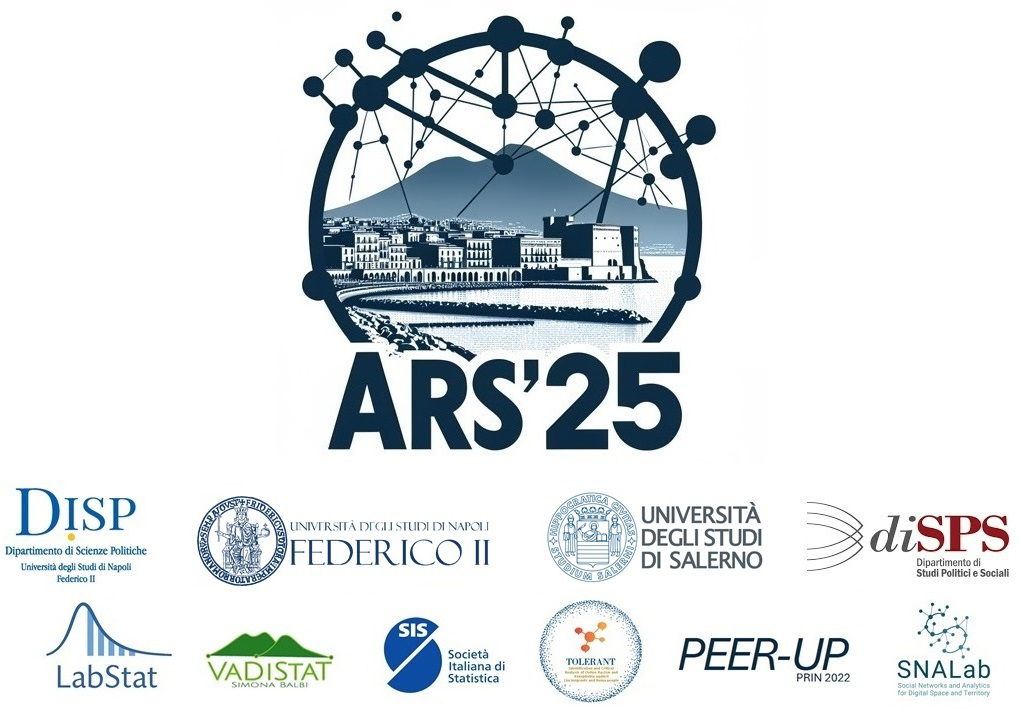Gianluca Manzo
Sorbonne University
Department of Sociology
Paris, France
Website: www.gemass.fr/member/manzo-gianluca

Title Agent-based Computational Models and Social Network Analysis: A Fruitful Cooperation
Abstract Agent-based computational models (ABMs) provide a flexible framework to design and to study the link between micro-level mechanisms and macroscopic outcomes when complex networks of social interactions are a mediator between actors and the larger social patterns and dynamics of 6interest. But how these interaction structures can be represented within an agent-based computational model, and how real-world socio-metric or ego-centric datasets can be used to connect virtual agents within a computational model? The talk answers these questions by dissecting a variety of agent-based computational models of social inequality and of diffusion dynamics where one actors’ decision depends on her neighbors’ decisions. By clarifying the ways in which networks of social interactions are represented, used and empirically calibrated within many agent-based computational models of large-scale patterns and dynamics, the talk hopes to contribute to a better dialogue between statistically-oriented social network analysts and agent-based computational modelers.
Short bio Gianluca Manzo is Professor of Sociology at Sorbonne University. He is a fellow of the European Academy of Sociology, and the editor of L’Année sociologique. He serves as president of the RC45 “Micro-Macro Modelling” of the International Sociological Association; he served as chair of the section “Decision-making, Networks, and Society” of the American Sociological Association, and as vice-president of the International Network of Analytical Sociology. He applies computational models and social network analysis to the study of social stratification and diffusion dynamics. He is the author of La spirale des inégalités (PUPS, 2009) and of Agent-based Models and Causal Inference (Wiley, 2022). He also edited Analytical Sociology: Actions and Networks (Wiley, 2014) and the Research Handbook on Analytical Sociology (Edward Elgar, 2021).
Isabel Raabe
University of Zürich
Department of Sociology
Zürich, Switzerland
Website: https://www.suz.uzh.ch/en/institute/aboutus/mid_level/raabe.html

Title Deviant Behaviour and Social Status: Dynamics of resistance behaviour in classrooms
Abstract I investigate anti-school behaviour, such as disturbing lessons, not putting effort into schoolwork, or arguing with teachers. It has been shown that this happens more in school classes with a higher share of low-SES kids. I propose that one likely mechanism is through unfavourable peer norms. Peer and groups norms can establish a dynamic in which students perceive anti-school behaviour as desirable, as it contributes to their social standing in the peer group. Popular students in particular are a powerful influence in setting norms in the school context and can hence act as catalysts in the manifestation of a peer culture. I propose that the higher the share of lower SES kids in a classroom, the more likely there could be a peer norm fostering anti-school behaviour, irrespective of individual socioeconomic background. I analyse large-scale social network data (7’847 students in 384 school classes in Germany and Sweden, from the CILS4EU data). I apply multilevel longitudinal social network analysis (SAOMs) to analyse the co-evolution of social status network and anti-school behaviour. My results show that having a high status increases anti-school behaviour, and that anti-school behaviour increase social status. The socioeconomic composition of the school class moderates the effect of anti-school behaviour on social status: In classes with a higher SES composition, this effect is stronger.
Short bio Isabel Raabe is an SNF Ambizione-Grant holder at the Department of Sociology. She is working on school classroom compositions and their effects on social dynamics and educational outcomes. Previously, she was a postdoctoral research fellow at the Chair of Social Theory and Quantitative methods. She received her PhD in Sociology from the University of Oxford in 2018, for which she submitted a thesis entitled “Social Aspects of Educational Inequality”, supervised by Jan O. Jonsson. She worked at the Social Networks Lab at ETH Zürich as a predoctoral researcher from 2016 to 2018, where she was involved in a research project on the social integration of Swiss bachelor students (Swiss StudentLife). In her research, she is interested in how individuals shape and interact with their social context, and whether this can explain different aspects of social inequality, especially in the educational context.
Anna Piazza
University of Greenwich
School of Business and Operations of Strategy
London, United Kingdom
Website: https://www.gre.ac.uk/people/rep/faculty-of-business/anna-piazza

Title The relational process of digital Identity in cyberspace: A Social Network Perspective
Abstract Digital platforms are fundamentally reshaping how we construct, perform, and experience identity. This is not a solitary act, but a deeply relational process, interwoven with social ties, structured interactions, and the potent dynamics of social categorisation. Online, identity transcends mere self-expression, becoming a strategic endeavour where individuals gain social value by aligning with community norms. This often means navigating powerful, socially constructed categories—from 'influencer' to 'bully'—that carry significant social power and symbolic meaning. Consequently, the digital self is a continuous negotiation of relational patterns, profoundly impacting how trust is extended, privacy is managed, and belonging is affirmed.
Crucially, this relational lens also offers vital insights into the escalating challenges of online hate and misconduct. Understanding how identities are formed and perceived within these relational structures is key to developing effective strategies for social cybersecurity and fostering safer digital communities. I will argue that Social Network Analysis (SNA) serves as more than a technical tool; it's a vital structural lens for unveiling how trust circulates, privacy boundaries materialise, and social attributes (including those associated with hate and misconduct) are shared through digital interactions.
Rooted in a sociological relational framework, this keynote invites a critical, cross-disciplinary dialogue. It bridges insights from sociology, network science, cybersecurity, and organizational theory to comprehensively examine how identity is scaffolded, sustained, and protected in our increasingly networked digital world.
Short bio Anna Piazza is a senior lecturer in Economic Sociology at the School of Business, Operations and Strategy. She is currently working on the cyber resilience of Critical National Infrastructure, with a focus on mapping network ties specifically in the Higher Education Sector and Health Sector. She holds a PhD in Business and Interorganisational Networks from the University of Greenwich, where she was supervised by Dr. Francesa Pallotti. Before joining the University of Greenwich in January 2023, she was Postdoctoral Researcher in the Computer Science Department at the University College London, contributing to Cybersecurity Readiness for Board (CR4B) led by Prof. Madeline Carr, which examined cyber security decisions of UK Boards. Her research focuses on how social relationships impact individual and organisational outcomes, addressing dynamics of interorganisational collaboration, information sharing, social cybersecurity and leadership.

